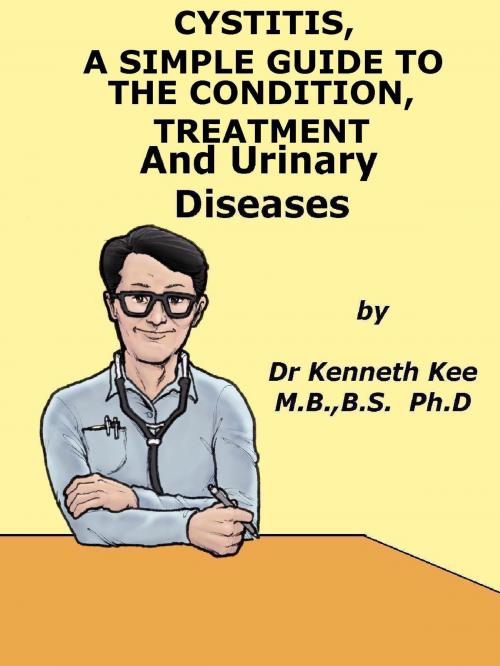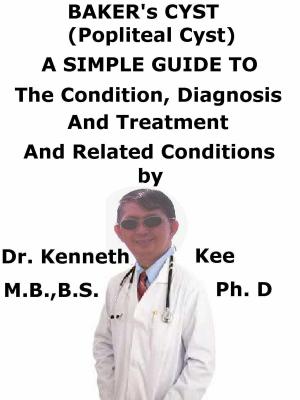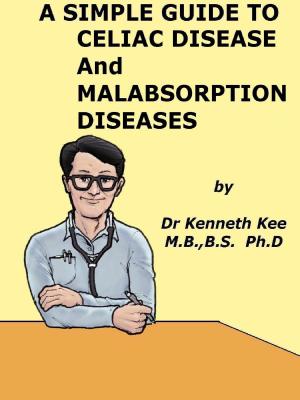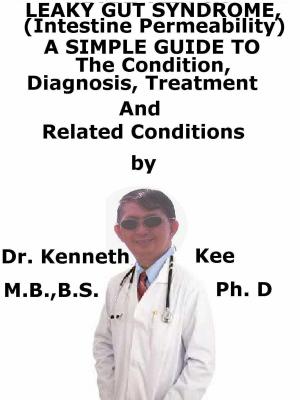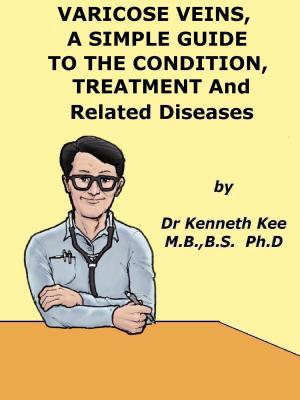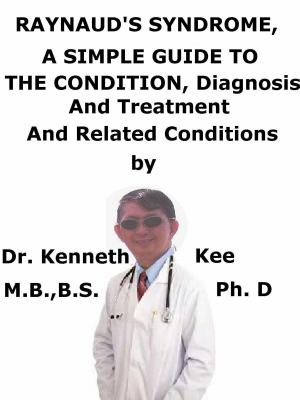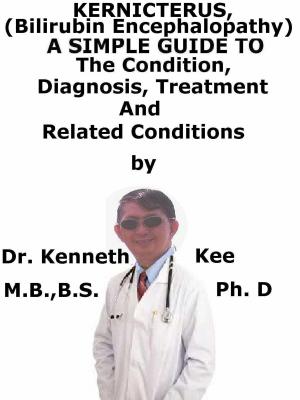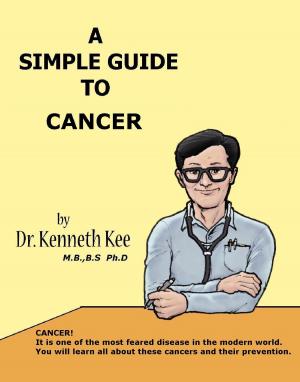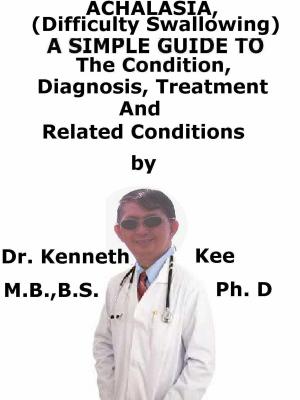Cystitis, A Simple Guide To The Condition Treatment And Urinary Diseases
Nonfiction, Health & Well Being, Medical, Specialties, Urology, Health, Women&| Author: | Kenneth Kee | ISBN: | 9781310805943 |
| Publisher: | Kenneth Kee | Publication: | June 2, 2015 |
| Imprint: | Smashwords Edition | Language: | English |
| Author: | Kenneth Kee |
| ISBN: | 9781310805943 |
| Publisher: | Kenneth Kee |
| Publication: | June 2, 2015 |
| Imprint: | Smashwords Edition |
| Language: | English |
Introduction
Ode to Cystitis
Cystitis is the infection of the bladder within
Causing burning pain and frequent urinating
Most cases of Cystitis will occur in women
The bacteria has a shorter distance to travel than in men
Honeymoon cystitis is a well known cause of urine infection
So are people who are exposed to sexual infection transmission
Insufficient water or fluids tend to accumulate germs in the urine
Try to drink at least 8 glasses of water to wash out wastes from within
There may be mild fever and body aching
Sometimes there is cloudy or blood in the urine
The patient can feel quite bad and very restless
He or she needs an injection to make the pain less
Antibiotics should taken to stop the urine infection
Painkillers and antispasmodics are the other medications
Usually that should cure the cystitis for all people
Recurrences are usually quite frequent for anyone
-An original poem by Kenneth Kee
Interesting Tips about the Cystitis
A Healthy Lifestyle
1. Take a well Balanced Diet
2. Relief of symptoms includes an antispasmodic drug and pain killer to stop suprapubic discomfort
Antibiotics should be given for infections especially after urine bacterial culture
Drink plenty of water-8 glasses a day.
Try placing a heated pad or hot water bottle on the abdomen.
Try to take live unsweetened yogurt-this contains "good" bacteria which help combat the bad.
Avoid wearing tight trousers.
Do not fight the urge to urinate, even if this is painful.
Drink 2 glasses of unsweetened cranberry juice as this can help prevent bacteria adhering to the bladder wall.
A warm bath will help give some pain relief.
3. Keep bones and body strong
Bone marrow produces our blood
Eat foods rich in calcium like yogurt, cheese, milk, and dark green vegetables.
Eat foods rich in Vitamin D, like eggs, fatty fish, cereal, and fortified milk.
Eat food rich in Vitamins B and C such as green vegetables and fruits
Zinc and other minerals are important to the body
4. Get enough rest and Sleep
Avoid stress and tension
5. Exercise and stay active.
It is best to do weight-bearing exercise such as walking, jogging, stair climbing, dancing, or lifting weights for 2½ hours a week.
One way to do this is to be active 30 minutes a day at least 5 days a week.
Begin slowly especially if a person has not been active.
6. Do not drink more than 2 alcohol drinks a day for a man or 1 alcohol drink a day for a woman.
Alcohol use also increases the chance of falling and breaking a bone.
Alcohol is no good for the liver or pancreas.
Alcohol also affects the neurons.
7. Stop or do not begin smoking.
It also interferes with blood supply and healing.
Chapter 1
Cystitis
Cystitis or infection of the urinary bladder is a very common condition especially in the women.
Because the opening of the women’s bladder is quarter of an inch from the inside to the outside of the bladder, it is very prone to germs going up to the inside of the bladder.
Sexual intercourse is one of the causes of cystitis.
Child or adult pampers are frequent causes of urinary bladder infection.
What is Cystitis?
Cystitis is an acute or chronic infection of the urinary bladder.
What are the causes of Cystitis?
Cystitis is usually caused by the following:
1. Ascending infection of the urinary bladder from the urethra.
2. In females frequently associated with sexual activity e.g. honeymoon cystitis
3. In males with enlargement of the prostate or infection of the prostate
4. In children, the bacteria E.coli of the same type as the child's bowels
5. More frequently present in Diabetic patients
6. Urinary catheterization
7. Cystitis is more common in the female, especially those on contraceptive pills or with intrauterine contraceptive devices.
8. May be associated with congenital abnormalities of the urinary tract such as
a. Bladder neck obstruction,
b. Urethral reflux,
c. Neurogenic bladder, and
d. Urinary incontinence.
Introduction
Ode to Cystitis
Cystitis is the infection of the bladder within
Causing burning pain and frequent urinating
Most cases of Cystitis will occur in women
The bacteria has a shorter distance to travel than in men
Honeymoon cystitis is a well known cause of urine infection
So are people who are exposed to sexual infection transmission
Insufficient water or fluids tend to accumulate germs in the urine
Try to drink at least 8 glasses of water to wash out wastes from within
There may be mild fever and body aching
Sometimes there is cloudy or blood in the urine
The patient can feel quite bad and very restless
He or she needs an injection to make the pain less
Antibiotics should taken to stop the urine infection
Painkillers and antispasmodics are the other medications
Usually that should cure the cystitis for all people
Recurrences are usually quite frequent for anyone
-An original poem by Kenneth Kee
Interesting Tips about the Cystitis
A Healthy Lifestyle
1. Take a well Balanced Diet
2. Relief of symptoms includes an antispasmodic drug and pain killer to stop suprapubic discomfort
Antibiotics should be given for infections especially after urine bacterial culture
Drink plenty of water-8 glasses a day.
Try placing a heated pad or hot water bottle on the abdomen.
Try to take live unsweetened yogurt-this contains "good" bacteria which help combat the bad.
Avoid wearing tight trousers.
Do not fight the urge to urinate, even if this is painful.
Drink 2 glasses of unsweetened cranberry juice as this can help prevent bacteria adhering to the bladder wall.
A warm bath will help give some pain relief.
3. Keep bones and body strong
Bone marrow produces our blood
Eat foods rich in calcium like yogurt, cheese, milk, and dark green vegetables.
Eat foods rich in Vitamin D, like eggs, fatty fish, cereal, and fortified milk.
Eat food rich in Vitamins B and C such as green vegetables and fruits
Zinc and other minerals are important to the body
4. Get enough rest and Sleep
Avoid stress and tension
5. Exercise and stay active.
It is best to do weight-bearing exercise such as walking, jogging, stair climbing, dancing, or lifting weights for 2½ hours a week.
One way to do this is to be active 30 minutes a day at least 5 days a week.
Begin slowly especially if a person has not been active.
6. Do not drink more than 2 alcohol drinks a day for a man or 1 alcohol drink a day for a woman.
Alcohol use also increases the chance of falling and breaking a bone.
Alcohol is no good for the liver or pancreas.
Alcohol also affects the neurons.
7. Stop or do not begin smoking.
It also interferes with blood supply and healing.
Chapter 1
Cystitis
Cystitis or infection of the urinary bladder is a very common condition especially in the women.
Because the opening of the women’s bladder is quarter of an inch from the inside to the outside of the bladder, it is very prone to germs going up to the inside of the bladder.
Sexual intercourse is one of the causes of cystitis.
Child or adult pampers are frequent causes of urinary bladder infection.
What is Cystitis?
Cystitis is an acute or chronic infection of the urinary bladder.
What are the causes of Cystitis?
Cystitis is usually caused by the following:
1. Ascending infection of the urinary bladder from the urethra.
2. In females frequently associated with sexual activity e.g. honeymoon cystitis
3. In males with enlargement of the prostate or infection of the prostate
4. In children, the bacteria E.coli of the same type as the child's bowels
5. More frequently present in Diabetic patients
6. Urinary catheterization
7. Cystitis is more common in the female, especially those on contraceptive pills or with intrauterine contraceptive devices.
8. May be associated with congenital abnormalities of the urinary tract such as
a. Bladder neck obstruction,
b. Urethral reflux,
c. Neurogenic bladder, and
d. Urinary incontinence.
